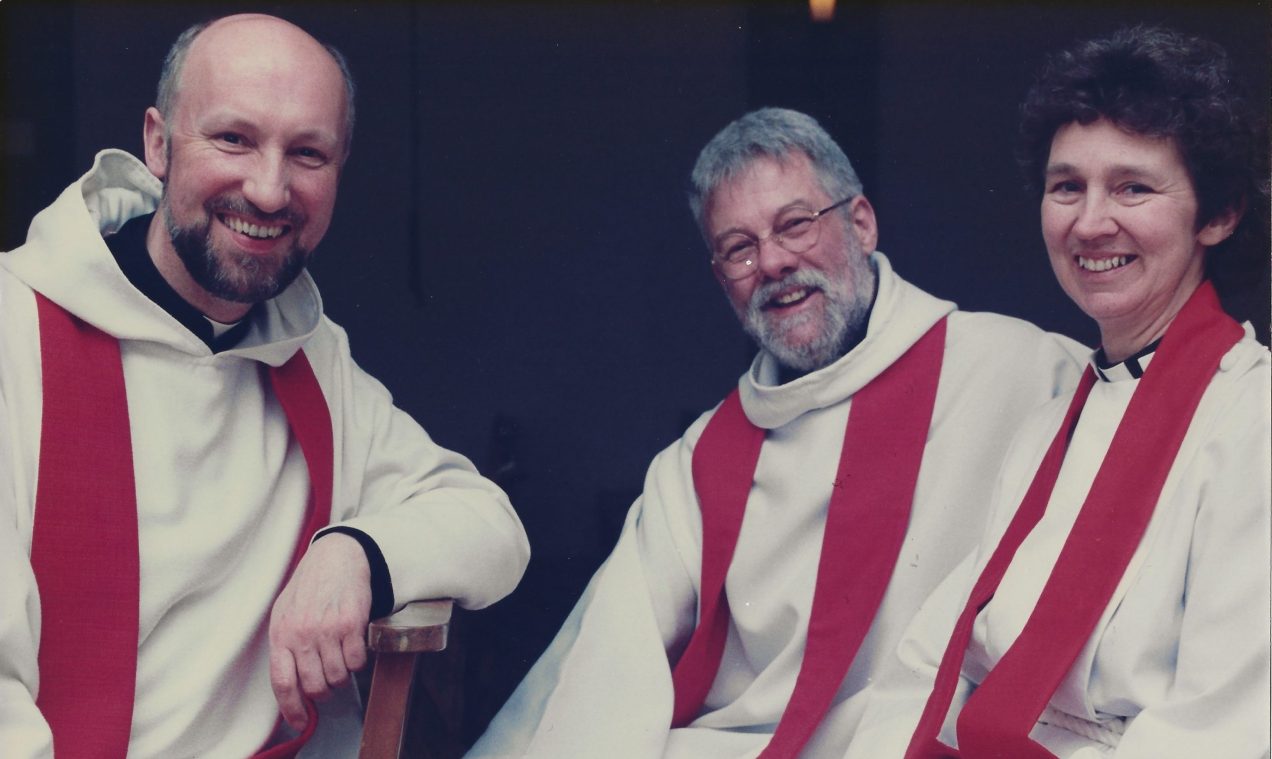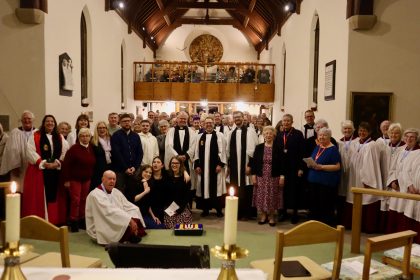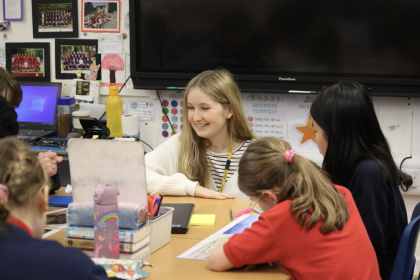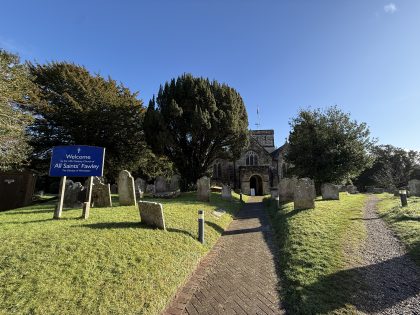On 28th April 1994, the third ever service to ordain women as priests in the UK took place – and it happened in our diocese, in the parish of Maybush in Southampton. The first priesting service had taken place at Bristol Cathedral on 12th March, shortly followed by a service at Sheffield Cathedral three days later. In our diocese, two women deacons were then ordained – but not in the Cathedral, but rather in a ‘normal’ urban parish church faithfully serving a community down near the Southampton docks.
The fast-paced planning of the service came about in response to an administrative need – one of the deacons, Revd Cathy Milford, who was the diocesan Adult Education Adviser at the time, and also the Moderator of MOW (the Movement for the Ordination of Women), was due to preside at service of thanksgiving planned by MOW to be held at Ripon on 9th April. So there was a rush to ensure she was priested before this auspicious occasion!
The other person, Revd Eileen Wetherell, had been a deacon in the parish for two years and was only too delighted to be priested alongside Cathy…
“It was quite a day I can tell you! There were about 400 people there so it was a tight squeeze in the church. I remember the actual moment of ordination, kneeling in front of the Bishop, my heart was beating so loudly I thought everyone must be able to hear it. But at the same time I felt an enormous sense of peace. Then when the Bishop presented Cathy and myself as newly ordained priests, everyone whooped and cheered – it was quite overwhelming!”
The service was led by the Rt Revd John Perry, Bishop of Southampton, but had been organised chiefly by Revd Norman Boakes, the vicar of Maybush. Both men were great supporters of women’s ordination. The Bishop of Winchester at the time, Rt Revd Colin James, was not in favour of the change to allow women into the priesthood, but – according to Revd Boakes – “did everything possible to support his colleagues. Although he personally did not want to take part in the service, he wanted to be a faithful servant of the Church.”
“What struck me most was, when all the priests gathered round to lay on hands on the candidates, just how normal and ordinary it was,” remembered Revd Norman. “On one level it was a groundbreaking moment, but on another level here was the Church doing what it always does and has done for centuries: testing someone’s vocation and then affirming it.”
Revd Eileen remembers where she was when she first realised that being ordained as a priest was going to be possible. “When General Synod voted, I was with the MOW group at Methodist Central Hall and we had a relay going back and forth. When the vote results came in there was this huge silence as we did our sums, and then suddenly a huge shriek of joy as we all fell on each other laughing and crying!”
“When I got home Revd Norman, my training incumbent, had sent round a bottle of bubbly. We were so grateful to have male allies like him. It’s so important that ministry is seen as men and women working alongside each other.”
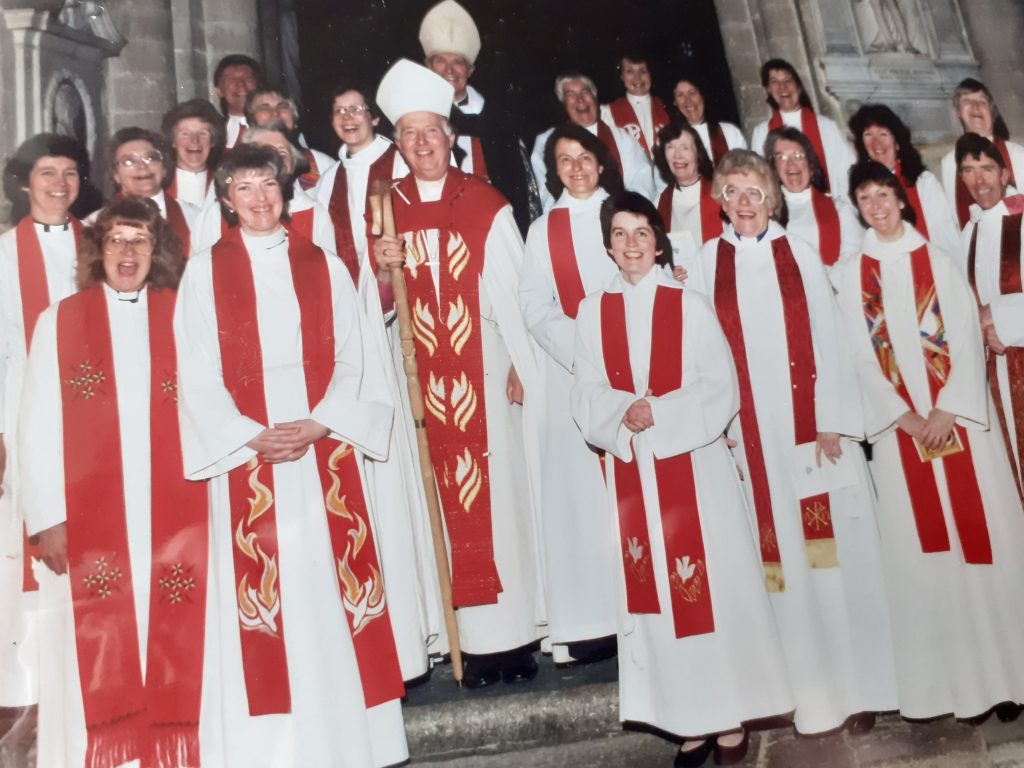
At the time there were 19 female deacons in the Diocese of Winchester, and so four more services of ordination followed throughout the year: at Romsey Abbey, St Michael’s Basingstoke, St Augustine’s Bournemouth and Winchester Cathedral. “We all went along to all of them to support each other,” recalls Eileen, “It didn’t feel like we were properly ordained priest until we all were!”
Revd Eileen went on to have a flourishing priestly ministry in our diocese: after her curacy she moved to be Team Rector at Calmore for 8 years, and then to Hythe for a further 8 years, and, now retired, she has PTO in Freemantle helping out as much as she can.
But it’s been a hard won journey: “I think younger generations don’t fully understand the battle we went through, how we were knocking at the door for decades and what a big deal it was. I remember being asked to go into my daughter’s sixth form college to be a case study for history and sociology classes. Because that’s what was happening – we were making history!”

